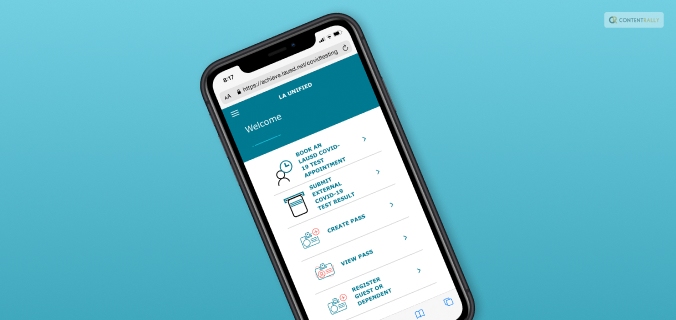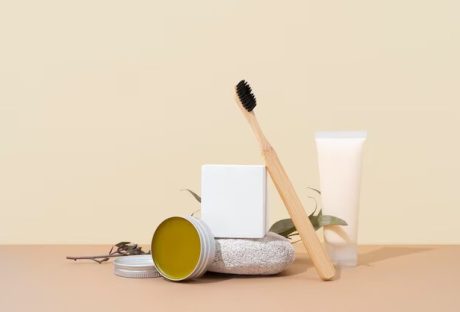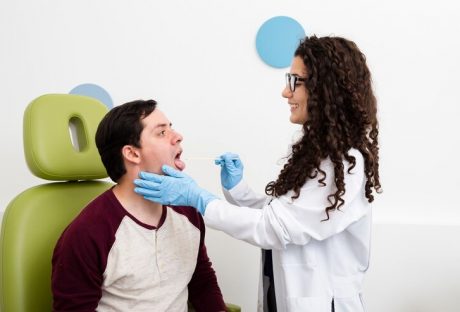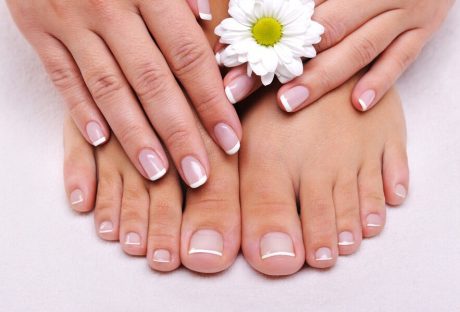Humanity was forced to live inside their homes, isolated from each other in 2020. This is the year when the coming of the Covid pandemic shook every person in the world. Hailing from Wuhan, China, this disease infected billions globally and caused the death of millions.
This pandemic forced humanity to rethink its approach to survival. People who were lucky to have desk jobs were forced to work from home. The same also went for the students as well, who all received education from their laptop screens.
However, as the world was in a period of crisis, Covid vaccinations became the only means of survival. As more and more people started getting vaccinated, the fear of getting infected by this virus slowly started dwindling.
Workspaces, public transportation, restaurants, theatres, and schools started reopening again. Everything started going back to normal slowly. However, to gain access to any such facilities, you need to show them your Covid vaccination certificate.
This constant check of vaccination certificates became a hassle for most places, especially in schools. Since you were required to take multiple vaccine doses, you had to update your certification as necessary. This made regulation and checking even more difficult.
To make matters easier for schools, the Los Angeles government introduced the system of the highly acclaimed LAUSD Daily Pass. This made regulating and updating information regarding the vaccination certification of students easier than before.
Read this post till the end to learn more about this Daily Pass.
What Is LAUSD Daily Pass?

So far, to prevent the spread of the Coronavirus, every student enrolled in Los Angeles schools must submit weekly certifications. Here, these weekly certifications refer to compulsory weekly Covid tests that the students had to go through. Therefore, if you tested negative every week, only you were allowed to enter the school premises.
However, getting weekly Covid is a pretty time-consuming process. Therefore, to make matters easier for parents and students, the LAUSD Daily Pass System was introduced.
So far, all the Covid tests were PCR tests that the school conducted on their premises. Therefore, school administrations were forced to take extra steps to ensure the safety of the students during such tests. Here, many parents voiced their opinions regarding the slow and cumbersome nature of such tasks, that too since they were done every week.
This is why the administration of the Los Angeles Unified Schools changed the way they operated. Instead of conducting weekly tests, they now started handing out Covid Antigen Test kits to all students.
With these test kits, parents can conduct Covid tests for the students from the comforts of their homes. Gone is the time-consuming process of lining up outside school premises to get Covid PCR tests done.
You can simply use these test kits to test for the presence of Covid antibodies in your system. If you have a healthy amount of such antibodies in your system, you are relatively free from getting infected by Coronavirus again.
Plus, it’s relatively easy to use the LAUSD Daily Pass. All you need to do as a parent is to use the kit to conduct tests yourself. After the reports are out in a few hours, you can simply upload the results on the LAUSD online portal using the LAUSD App.
Who Can Access The LAUSD Daily Pass?
LAUSD Daily Pass Checklist For Student And Family

The official LAUSD Daily Pass website has uploaded a checklist for the students and their parents. These act as core policies that all must adhere to. Here are all the points that have been mentioned on this checklist.
- First and foremost, you must conduct a Covid test using the Antigen kit that has been provided to each student. In addition, after taking the test, you must ensure the results are negative. Here, it’s advised that the tests are done on weekends.
- After the tests are negative, you must go to this website – dailypass.lausd.net. Here, you must manually upload your test results to get the LAUSD Daily Pass.
- After you get your LAUSD Daily Pass, you will also get a QR code. When your ward goes to school the next day (preferably on a Monday), you must present this QR code at your school entrance. In addition, you must ensure that your ward reaches the school gates by 8 AM and get their temperatures checked there.
How To Use LAUSD Daily Pass System?

As a parent, using the LAUSD Daily Pass is vital. To use it without any mistakes, simply follow these steps as explained below:
- First, go to the website dailypass.lausd.net.
- Then, you will be asked a series of health check questions. Answer them one by one as they appear on the screen. It will take a maximum of two minutes to do so.
- After that, you are requested to submit your Antigen test reports to get the qualification QR code, as mentioned in the section above.
If you are worried about what questions you will have to answer here, then fear not. I have made a list of all the potential questions you will be asked. See if you can answer them here now!
- Do you agree to take safety precautions in school (wear masks, use hand sanitizers, avoid inviting too many guests at home, practice distancing, etc.)?
- Did you have any of the following symptoms in the last 14 days? – Fever (over 100 degrees Fahrenheit), breathing problems, fatigue, body chills, sore throat, cough and cold, loss of taste and smell, nausea, diarrhea?
- Did you take a Covid test in the last 14 days?
- By any chance, did you come in close proximity to a person infected by the Coronavirus?
- Have you traveled outside Southern California in the last 14 days?
- Are you under any isolation or quarantine order by the Los Angeles Health Department?
Read Also:
- COVID-19 And Education Transformation
- How to Get Great Masks during COVID-19
- How Did COVID Change Landlord-Tenant Laws























